About ten years ago, while spending a few days under the hospitable roof of the distinguished Belgian jurist, the lamented M. de Laveleye, our conversation turned, during one of our rambles, to the subject of religion. "Do you mean to say," asked the venerable professor, "that you have no religious instruction in your schools?" On my replying in the negative he suddenly halted in astonishment, and in a voice which I shall not easily forget, he repeated "No religion! How do you impart moral education?" The question stunned me at the time. I could give no ready answer, for the moral precepts I learned in my childhood days, were not given in schools; and not until I began to analyze the different elements that formed my notions of right and wrong, did I find that it was Bushido that breathed them into my nostrils.
The direct inception of this little book is due to the frequent queries put by my wife as to the reasons why such and such ideas and customs prevail in Japan.
In my attempts to give satisfactory replies to M. de Laveleye and to my wife, I found that without understanding Feudalism and Bushido, the moral ideas of present Japan are a sealed volume.
Pronounced Boó-shee-doh'. In putting Japanese words and names into English, Hepburn's rule is followed, that the vowels should be used as in European languages, and the consonants as in English.
Taking advantage of enforced idleness on account of long illness, I put down in the order now presented to the public some of the answers given in our household conversation. They consist mainly of what I was taught and told in my youthful days, when Feudalism was still in force.
Between Lafcadio Hearn and Mrs. Hugh Fraser on one side and Sir Ernest Satow and Professor Chamberlain on the other, it is indeed discouraging to write anything Japanese in English. The only advantage I have over them is that I can assume the attitude of a personal defendant, while these distinguished writers are at best solicitors and attorneys. I have often thought,—"Had I their gift of language, I would present the cause of Japan in more eloquent terms!" But one who speaks in a borrowed tongue should be thankful if he can just make himself intelligible.
All through the discourse I have tried to illustrate whatever points I have made with parallel examples from European history and literature, believing that these will aid in bringing the subject nearer to the comprehension of foreign readers.
Should any of my allusions to religious subjects and to religious workers be thought slighting, I trust my attitude towards Christianity itself will not be questioned. It is with ecclesiastical methods and with the forms which obscure the teachings of Christ, and not with the teachings themselves, that I have little sympathy. I believe in the religion taught by Him and handed down to us in the New Testament, as well as in the law written in the heart. Further, I believe that God hath made a testament which maybe called "old" with every people and nation,—Gentile or Jew, Christian or Heathen. As to the rest of my theology, I need not impose upon the patience of the public.
In concluding this preface, I wish to express my thanks to my friend Anna C. Hartshorne for many valuable suggestions and for the characteristically Japanese design made by her for the cover of this book.
INAZO NITOBE. Malvern, Pa., Twelfth Month, 1899.
PREFACE
TO THE TENTH AND REVISED EDITION
Since its first publication in Philadelphia, more than six years ago, this little book has had an unexpected history. The Japanese reprint has passed through eight editions, the present thus being its tenth appearance in the English language. Simultaneously with this will be issued an American and English edition, through the publishing-house of Messrs. George H. Putnam's Sons, of New York.
In the meantime, Bushido has been translated into Mahratti by Mr. Dev of Khandesh, into German by Fräulein Kaufmann of Hamburg, into Bohemian by Mr. Hora of Chicago, into Polish by the Society of Science and Life in Lemberg,—although this Polish edition has been censured by the Russian Government. It is now being rendered into Norwegian and into French. A Chinese translation is under contemplation. A Russian officer, now a prisoner in Japan, has a manuscript in Russian ready for the press. A part of the volume has been brought before the Hungarian public and a detailed review, almost amounting to a commentary, has been published in Japanese. Full scholarly notes for the help of younger students have been compiled by my friend Mr. H. Sakurai, to whom I also owe much for his aid in other ways.
I have been more than gratified to feel that my humble work has found sympathetic readers in widely separated circles, showing that the subject matter is of some interest to the world at large. Exceedingly flattering is the news that has reached me from official sources, that President Roosevelt has done it undeserved honor by reading it and distributing several dozens of copies among his friends.
In making emendations and additions for the present edition, I have largely confined them to concrete examples. I still continue to regret, as I indeed have never ceased to do, my inability to add a chapter on Filial Piety, which is considered one of the two wheels of the chariot of Japanese ethics—Loyalty being the other. My inability is due rather to my ignorance of the Western sentiment in regard to this particular virtue, than to ignorance of our own attitude towards it, and I cannot draw comparisons satisfying to my own mind. I hope one day to enlarge upon this and other topics at some length. All the subjects that are touched upon in these pages are capable of further amplification and discussion; but I do not now see my way clear to make this volume larger than it is.
This Preface would be incomplete and unjust, if I were to omit the debt I owe to my wife for her reading of the proof-sheets, for helpful suggestions, and, above all, for her constant encouragement.
I.N.
Kyoto, Fifth Month twenty-second, 1905.
Read参考文献、
book参考文献
TOP


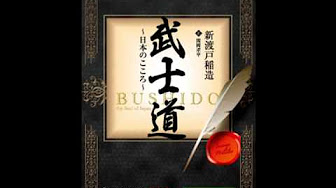


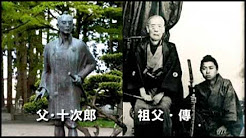

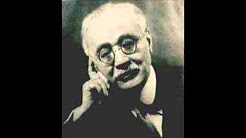



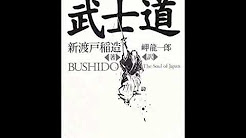
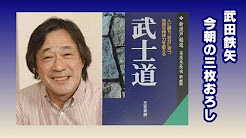

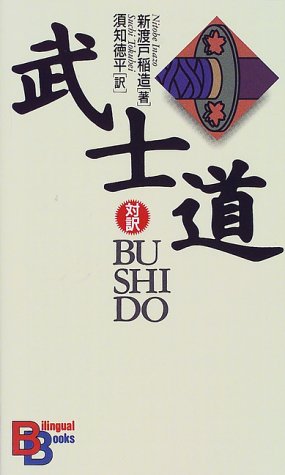

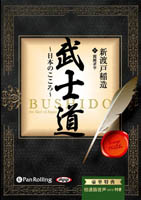 朗読,Read
朗読,Read
















 朗読,Read
朗読,Read